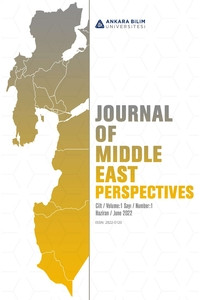Öz
Devlet-toplum ilişkisine odaklanan çalışmalar, Ortadoğu'da otoriter rejimlerin demokratik baskılardan nasıl kurtulduğunu ve iktidarlarını korumaya devam ettiğini ortaya koymaktadır. Dolayısıyla, benzer bir şekilde, Tarihsel Sosyolojiden esinlenen bu çalışma, Mısır devletinin tarihsel olarak, göstermelik parti siyaseti ve korporatist formülü benimseyerek toplumla otoriter ilişkiler kurduğunu savunuyor. Bu çalışma, otoriter rejimi formüle eden bu tarihi mirasın, bir yandan kilit aktörlere belirli kısıtlamalar getirdiğine diğer yandan da onlara hayati kaynaklar sağladığına ve böylece Mısır'da otoriter restorasyonu mümkün kıldığına dikkat çekmeyi amaçlamaktadır.
Anahtar Kelimeler
Arap Baharı Mısır Otoriter Restorasyon Korporatizm Parti Siyaseti Tarihsel Sosyoloji
Öz
Among the studies, those focusing on the relation between state and society reveal how the authoritarian regime survived from democratic pressures and continued to preserve power in the Middle East. Thus, in a similar vein, inspired by Historical Sociology, this study argues that the Egyptian state historically established authoritative relations with society through adopting façade party politics and corporatist formula. This study aims to draw attention to the fact that these historical legacies that had formulated the authoritarian regime have implied certain constraints on key actors as well as provided them vital resources, and thus enabled the authoritarian restoration in Egypt.
Anahtar Kelimeler
Arab Spring Egypt Authoritarian Restoration Corporatism Party-politics Historical Sociology
Ayrıntılar
| Birincil Dil | İngilizce |
|---|---|
| Bölüm | Araştırma Makalesi |
| Yazarlar | |
| Yayımlanma Tarihi | 26 Haziran 2022 |
| Yayımlandığı Sayı | Yıl 2022 Cilt: 1 Sayı: 1 |


